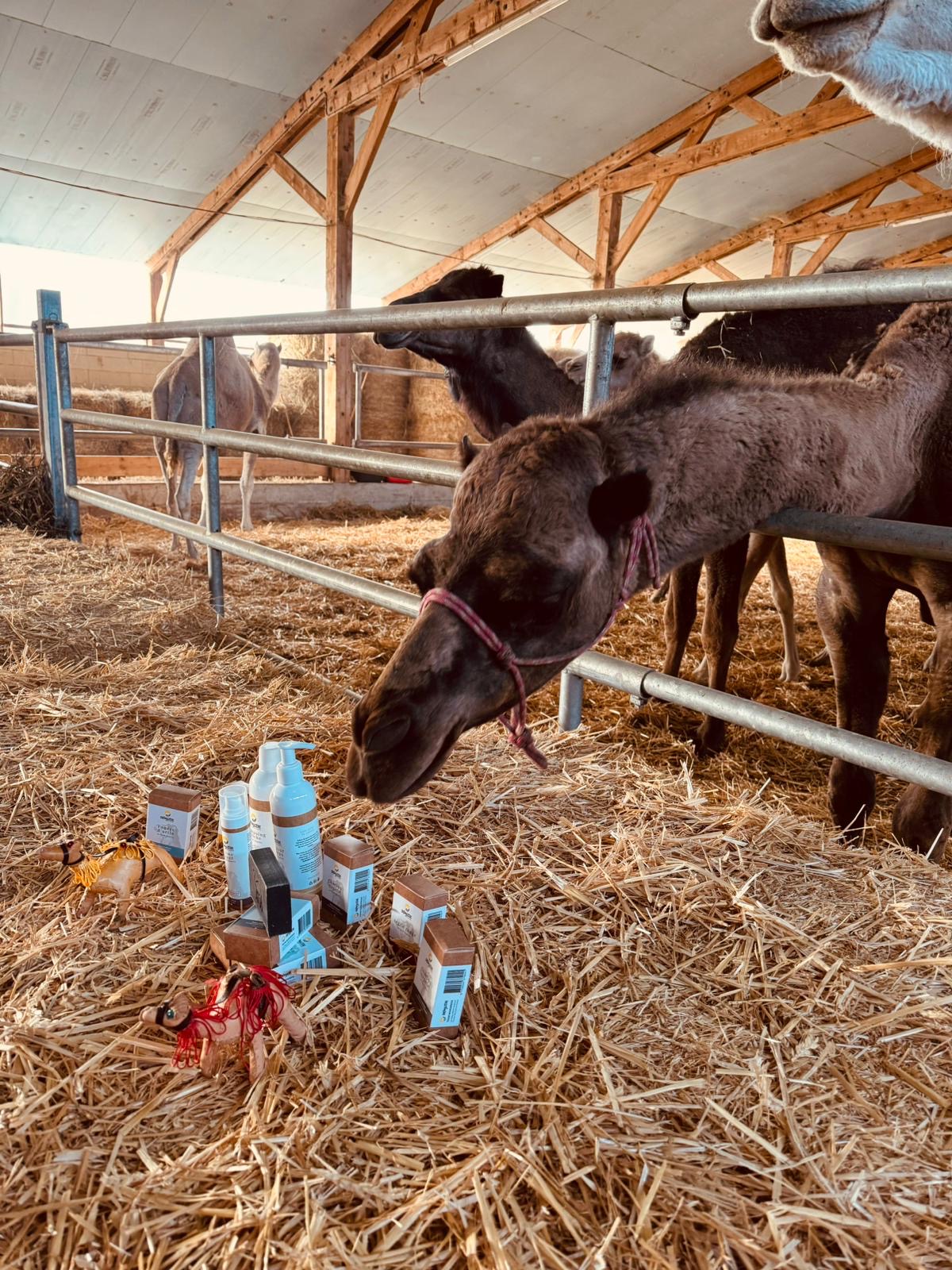The Camel milk
The benefits of camel milk for the skin
Camel milk, due to its composition, can be used as a photo-protective, moisturizing, anti-wrinkle, and anti-aging treatment.
The benefits of camel milk for the skin:
Camel milk is rich in unsaturated fatty acids, sterols, and lanolin. In other words, it is an excellent ingredient for soap production. Its high water content also gives it moisturizing properties.
The proteins in camel milk form bioactive antioxidant peptides that stimulate collagen production, helping prevent skin thinning and the appearance of wrinkles. Its high content of branched-chain amino acids and glutathione supports tissue repair and slows down aging. Moreover, the proteins found in camel milk are much less allergenic compared to those in cow’s milk.


DID YOU KNOW ?
In Asia, camel milk is notably recommended as a treatment for patients recovering from tuberculosis.
Polyunsaturated fatty acids
It contains polyunsaturated fatty acids that slow down skin aging, and liposomes that promote the rejuvenation of aging skin.
Alpha-hydroxy acids
Alpha-hydroxy acids promote the production of collagen, elastin, and glycosaminoglycans, and increase skin hydration. Those extracted from camel milk can help reduce acne, seborrheic keratosis, and skin aging.
3 Antioxidants
Camel milk contains three natural antioxidants with anti-wrinkle effects on the skin: vitamin A, vitamin E, and vitamin C. Vitamin C is present in camel milk at levels 3 to 7 times higher than in cow’s milk.
Hyaluronic Acid
Antibacterial Components
With the participation of :
